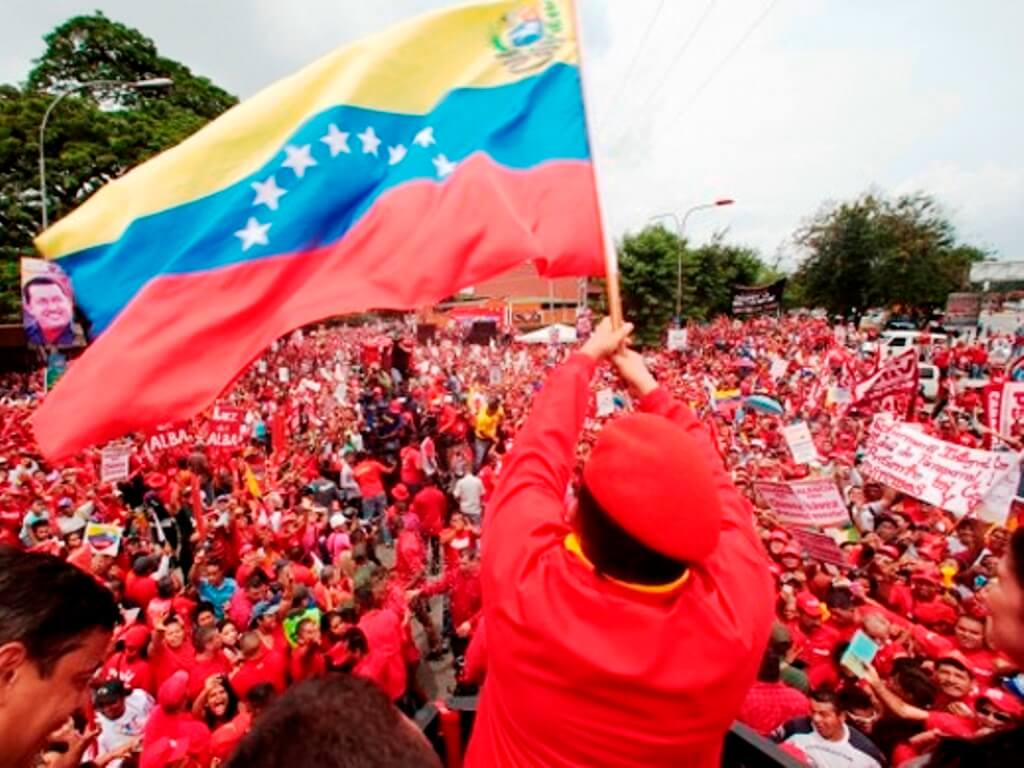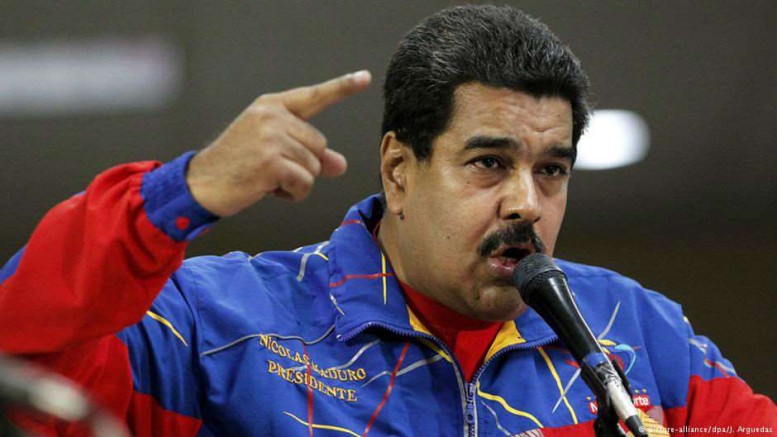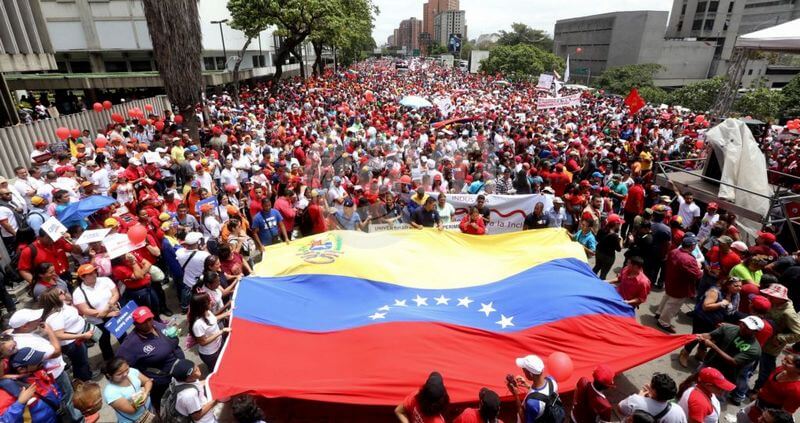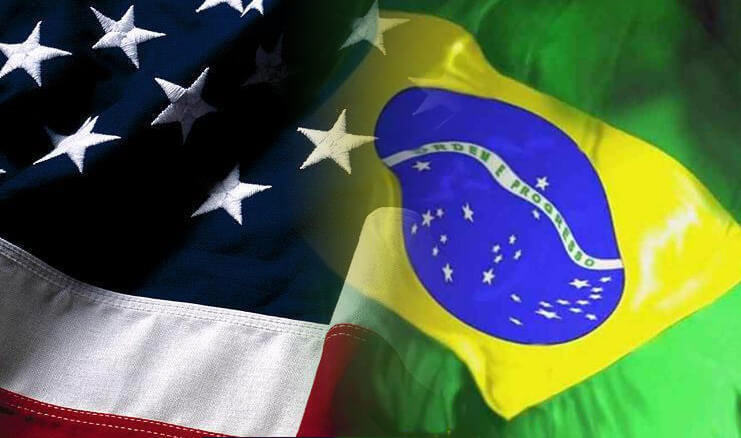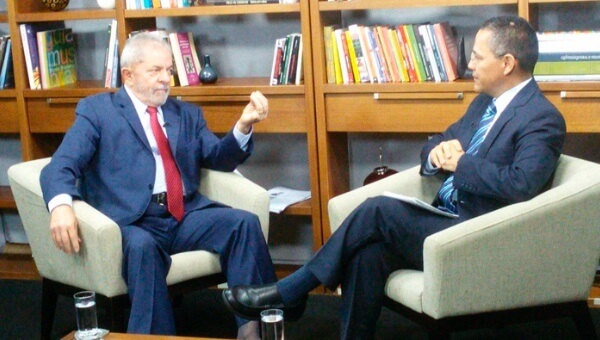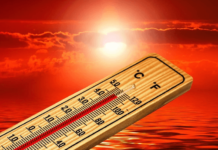By
Current events in Venezuela and the political opposition’s call for global protests against President Maduro conjure memories of the 2002 coup d’état – a moment marked by violence all too familiar for most Venezuelans. The opposition’s public call for national and international protests slated for September 1st accompanied by transportation strikes in some of the nation’s opposition strongholds along with rising inaccessibility to most basic staples also indicate strong possibilities for rampant guarimba violence reminiscent of the 2014 opposition demonstrations. So it would seem, a potential coup d’état is in progress.
Yet, what are the real possibilities? What are grassroots movements and others aligned with the Bolivarian process saying about the opposition’s upcoming demonstrations? What are the strategies in place? And, more importantly, how are the grassroots preparing to respond come September 1st?
2016 Opposition Protests and their Political Backdrop
This week’s protests center on the Venezuelan opposition’s insistent demand for a recall referendum to occur this year. This is not the first time Venezuela has faced a potential presidential impeachment. As teleSUR English’s Iain Bruce reports, “On August 15, 2004, the Venezuelan president, Hugo Chavez, faced his opponents in the first and only recall referendum against a sitting president in modern world history. The opposition parties were confident they would win. They assumed they would naturally recover the positions of power they had lost.” However, Venezuelan history proved otherwise and Chávez remained in office, securing a majority.
Since the people’s election of Chávez in 1998, the Bolivarian Revolution has marked a distinct transition away from an oligarchy that has historically siphoned oil and resources from the people devastating Venezuela’s majority poor nation. Over the last 17 years, Venezuela’s Bolivarian Process has made major strides in inclusionary rights, economic access and political consciousness raising domestically and on an international scale.
However, the opposition, actively supported by the United States, continues to strategize against the Bolivarian process which has radically transformed people’s material conditions and improved the majority poor’s livelihood.
On repeated occasions, the opposition has illegitimately pushed for the recall referendum to happen this year. Yet, National Electoral Council (CNE) President Tibisay Lucena publicly announced earlier this month that according to constitutionally established timelines, the recall referendum will not happenbefore January 2017. This is due to the opposition consciously beginning the process too late for all the steps to be completed this year.
Nonetheless, the opposition has found support of right-wing factions throughout the region such was the case earlier this month when 15 out of 35 OAS membersreleased a joint statement calling for the Venezuelan government to carry out what would be an unconstitutional referendum process before January 2017.
We’ve witnessed this same tactic over and over again. The battle to deligitimize Venezuela, allege that the country is breaching its constitution and highlight its challenges both economic and political are seemingly never-ending in the political arena and in corporate media. To a certain extent, the opposition has also successfully confused millions internationally about the diverse realities facing most Venezuelans.
The economic lead-up to this 2016 call for protests parallels the April 2002 coup. Just last week opposition legislator Freddy Guevara admitted that the opposition had used an “economic boycott” to force the government out. Moreover, he vowed that opposition would reach “Miraflores Palace” on September 1st, just as they did in 2002 when the opposition suddenly diverged from its pre-determined route and decided to march to Miraflores resulting in a direct confrontation between the right-wing opposition and Venezuelan popular forces.
Among the opposition’s other tactics have included a campaign to prevent the country from assuming Mercosur’s pro tempore presidency. Minister of Foreign Affairs Delcy Rodríguez along with grassroots movements aligned with the Mercosur process have denounced the continued refusal to transfer power over to Venezuela without grounds.
While international reports may seemingly paint a picture of disaster across the Latin American left and especially of more progressive governments, the continued efforts to destabilize Venezuela indicate that US imperialism is re-positioning itself in the region and returning to relationships with historic right-wing allies.
With this said, the direct hand of the US government in these destabilization attempts against Venezuela remains evermore present. One can look to the sanctions that were renewed in April this year as a prime example.
Furthermore, Venezuelan Foreign Ministry’s North American agency released a statement this Monday that renounced the US State Department spokesperson John Kirby’s call to release former mayor of San Criśtobal, Táchira state, Daniel Ceballos from prisoner.
Ceballos was transferred to prison after spending time under house arrest for his role in the 2014 guarimbas. The Ministry of Justice asserted that this week’s transfer was made after recent information surfaced of Ceballos’ potential escape plans to “coordinate acts of violence” this week.
“The brand and authorship of the coup being planned for September 1, 2016, in Venezuela, in collusion with the anti-democratic opposition and international right, has become clear…,” read the statement. It continued, “[President Barack Obama’s government] is seeking to destabilize Venezuela and the region in its final days to legitimize its imperial plans against peace and the development of the people.”
Likewise, US prize winning opposition spokesperson Yon Goicoecha was alsoarrested this week for the alleged possession of explosives equipment.
Voices from the Bolivarian Process
While there is more than enough evidence to suggest a coup may indeed already be in the works for Venezuela in the near future, a wide range of opinions and actions characterize Venezuelan public opinion regarding the opposition’s latest call for protests.
For example, the government has taken steps to prevent violence such as prohibiting drones from entering into Venezuelan airspace for the next 120 days unless sanctioned by the Defense Ministry. Many private businesses are also closing their doors amidst security concerns.
Meanwhile, grassroots spaces such as community councils and local media outlets have called for marches in support of the Bolivarian Process starting Tuesday August 30th as well as reminding people to have non-confrontational behavior on September 1st to avoid any possible bloodshed. For example, the Bicentennial Women’s Front convened “a great mobilization in defense of the revolution…we will demonstrate that we are the guardians of Chavez and the Revolution.”
In an exclusive with Venezuelanalysis, María Helena Ramírez, student organizer and resident of San Crístobal, Táchira state, stressed that during the September 1st demonstrations despite the opposition’s alleged call for “peace”, “some right wing spokespeople have remarked that ‘there will be deaths’ and ‘blood will run’ in public interviews.”
Ramírez also commented on the opposition’s strategic use of transportation highlighting that, “there will be buses leaving many regions of the country toward Caracas. This is a very interesting strategy given that Chavista social movements have mobilized across the country to march in the capital for years and the opposition historically has not.” The opposition most certainly counts on selling the impression internationally that their political position has a consolidated and unified base.
Likewise, in Táchira, Ramírez confirmed reports that there has been a transportation strike announced for nine days meant to interrupt and complicate citizens’ daily lives contributing to heightened levels of frustration and concern. Similarly, this last weekend when current opposition National Assembly leader Ramos Allup visited Táchira, people found tire road blocks in the same places that were strongholds for the 2014 guarimbas.
Ramírez suspects that, “what we are seeing is the beginning of an attack against Venezuela meant to push the people to the limit and carry out a coup.” However, Ramírez emphasized that the grassroots along with the Bolivarian government have committed to “protecting the people of Venezuela, especially in Caracas, and the Bolviarian Revolution.”
José Vicente Rangel, long time comrade of former President Hugo Chávez who also served as Minister during his administration, publicly expressed similar concerns over the September 1st marches in Venezuelan media – distinctively drawing parallels to the prelude of the 2002 coup. “In the time of a tense climate, this march could have very grave consequences. Any detail can be explosive and although the same promoters [of this march] insist that it will be civil in character, [our] experience proves otherwise,” Rangel suggests.
“As the march can occur in all normalcy, it can also repeat the brutal experience of April 11, 2002 march and other episodes of violence like the guarimbas, we must put forth with urgency: dialogue,” he continued, of which he stated 80 percent of Venezuela’s population favors.
“There are factions intent on creating a chaotic situation and provoking the rupture of constitutional and democratic order, as well as foreign interventionist adventures that would severely affect our national sovereignty. The opposition that exists in this country seems bent on disaster and total institutional rupture to facilitate [their] access to power; apparently all other options, except violence, are blocked,” Rangel stressed.
It is not without saying that President Maduro also conveyed similar concerns at a rally this weekend and denounced what he called a “an imperialist attack on all.” Maduro cited ongoing US interference and right-wing assaults against the governments of Brazil, Bolivia and Ecuador among other examples.
However, there are dissenting opinions. These reflections rest on the unforgotten ingenuity of the Venezuelan people to defy all odds and prevail against an avalanche of uncertainty.
In his recent publication “The Takeover of the Cities and Power (and the Desire to Take-Over)”, Venezuelan public intellectual and historian José Roberto Duque explains why he believes September 1st will be another unsuccessful opposition attempt to destabilize the nation.
Principally, Duque suggests that very few historical cases exist that show “rebellions” have led to drastic societal shifts and that these oppositions marches will not be among these examples.
“The only mobilizations of this historical time that have toppled governments or at the very least have shaken [them] include: 1) sudden and spontaneous [rebellions] (Venezuela, 1989); 2) [rebellions] directed, defined and inspired by genuine leaders (Venezuela, 1998); or 3) [rebellions] headed or financed by the international war machine (Libya, 2011),” he attests.
Additionally, Duque outlines that due to the opposition’s absent effort to build a consolidated base, combined with the Venezuelan Chavista population’s will to rectify the errors of the revolutionary process, while there may be a series of violent episodes across the country – nothing will mark a definitive “exit” to Maduro’s administration.
“Maybe blood will be spilt in some places, maybe they try and prolong for a few days the media sensation of a rebellion (the cameras and audiovisual production are ready, count on that),” Duque writes. However, he continues, “And perhaps from our side, from the side building this country, we will probably forget the arguments and demobilizing divides, and maybe we will remember in unison that the Revolution charges us with an important task, parallel or previous to all the others: avoid at all costs that the transnational corporation’s racist plague take ahold of the institutional management of the State.”
He concludes, “If this is the result, we will have obtained another political victory as others walk around announcing our decisive defeat.”
What about international solidarity?
While we’ve assessed an array of hypothesis regarding Venezuela’s future, time is the truest test. While one may argue that it would be foolish for the opposition to carry through a coup at this time, when they are relatively close to securing a recall referendum for early next year, we have seen how often the opposition is prone to bouts of sabotage and violence at the expense of people’s stability and lives.
However, in the process of writing this piece, what remains blaringly clear is the incredible need for international grassroots movements to re-engage with Venezuela and develop a renewed sense of commitment with the Bolivarian Process. Hypothesizing serves us little in the larger scheme of Venezuela’s future.
The growing divide between the Venezuelan grassroots and global left is not only discouraging but systematically intentional.
The international media barrage with all its exaggerations, misleading headlines and largely unfounded coverage has been critical to building one of the greatest imperialist and interventionist offensives in Latin America and the Caribbean. A similar case in this hemisphere may only be said for the historically racist isolation of Haiti and the distance between the global left and the popular movements carrying on more than 200 years of revolutionary process on the island.
As the impeachment process in Brazil against Dilma Rousseff is underway, it’s necessary to redraw our shared political lines to defend Venezuelan, Latin American and ultimately oppressed nations’ sovereignty and defeat capitalism’s steadfast determination to persevere no matter what.
What the world needs is for Venezuelans to face this trying time head on and win. A coup for Venezuela would mark what promises to be an already challenging era for our political generation as this chapter of great revolutionary fiesta winds down and we are charged with the real task of building other worlds different than our present.
Venezuelans already embarked on a path to achieve the nearly impossible. Seventeen years is not nearly enough to identify, create and consolidate viable economic alternatives as well as cultural and structural shifts in society. Seventeen years is not nearly enough to decolonize and undo over 500 years of imperialism, colonization and devastation.
International solidarity needs to be ready on September 1st to accompany the Venezuelan people and defend their revolutionary process.
